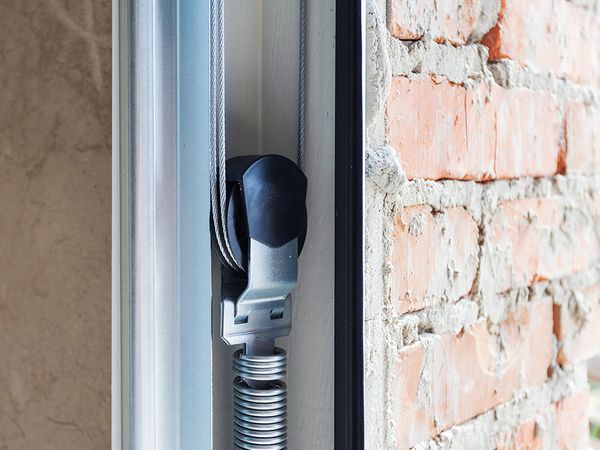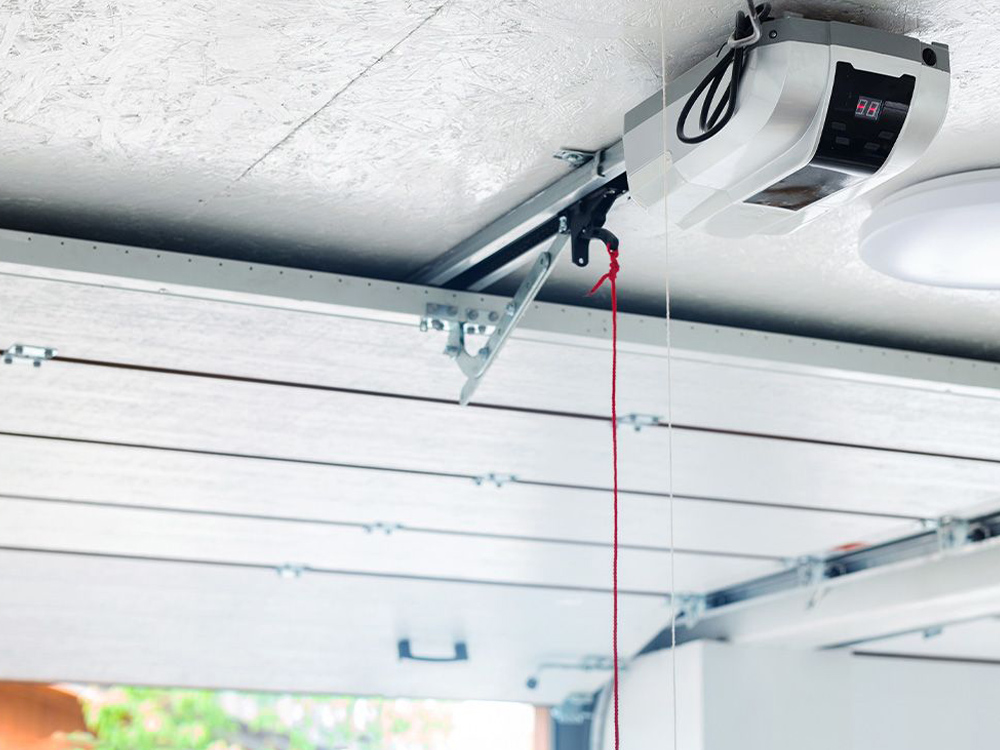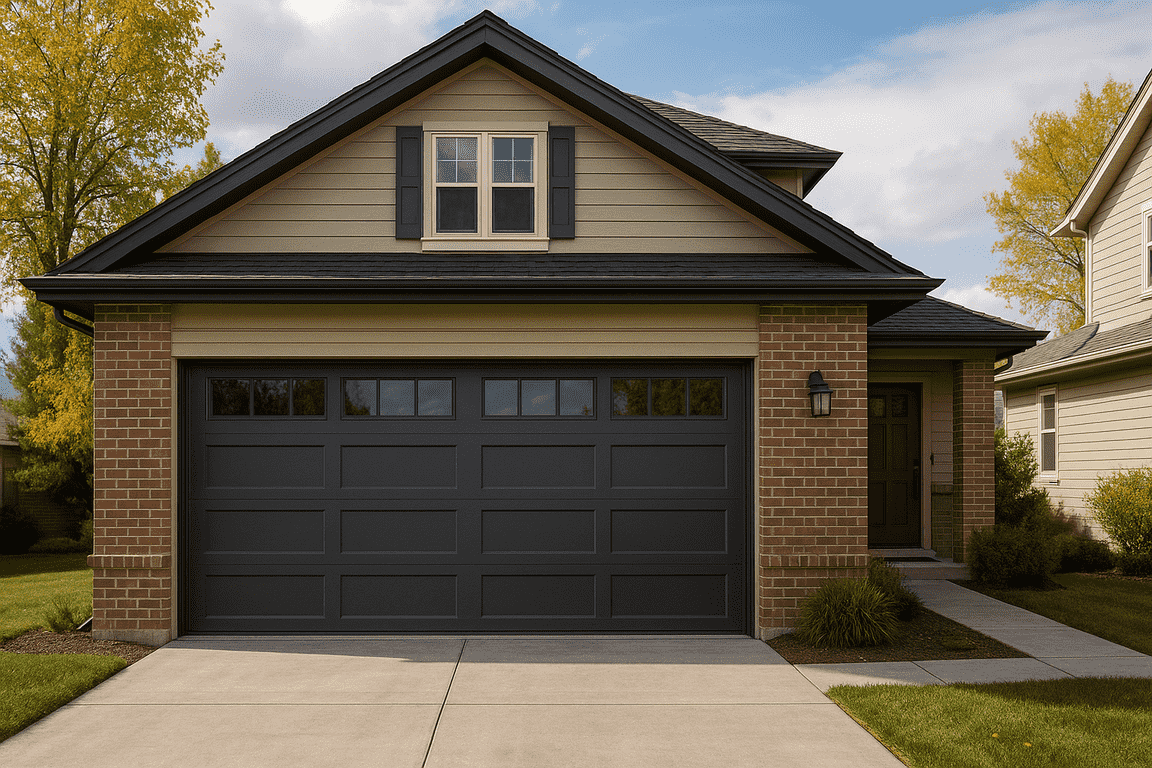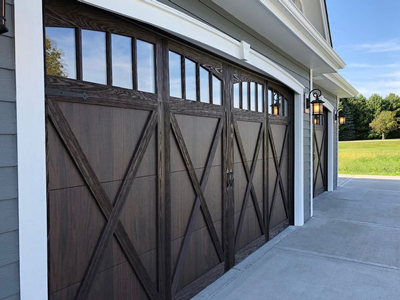Garage Door Spring Problems We See All the Time
Garage door springs don’t last as long as you’d hope. In Dallas Fort Worth, they break every week. Heat, heavy doors, and constant use wear them out fast. When a spring goes, the door stops moving. Cars stay stuck inside. Plans get delayed. It’s a hassle nobody wants, but it’s common here.

Common Signs Your Springs Are Failing
Springs rarely break without warning. The door starts to feel heavier. Lifting it by hand takes more effort. Sometimes, the door jerks or moves unevenly. You might spot a gap in the spring coil—a sure sign it’s about to go. Loud bangs echo through the garage when a spring finally gives out. The door may hang crooked or refuse to stay open halfway. These aren’t minor annoyances. They’re the early signals that the spring is on its last legs.
- Manual lift feels heavy or impossible
- Visible gap in the spring coil
- Door moves unevenly or shakes
- Loud pop or bang from the garage
- Door won’t stay level when opened partway
Ignoring these signs leads straight to a stuck door. Vehicles get blocked in. Deliveries pile up outside. The risk of injury climbs, especially if someone tries to force the door open. Spotting these issues early lets you schedule professional repairs before the door locks you out of your own garage.
What Happens When Springs Break
When a spring snaps, the door slams shut or refuses to open. The opener strains and groans, but the door barely moves. Sometimes, the cables tangle or come loose. The entire system goes out of balance. Trying to lift the door by hand? It feels like dead weight. The risk of pinched fingers or worse jumps fast. A broken spring doesn’t just stop the door. It can damage the opener, cables, and even the door panels if left unchecked. That’s why we always recommend calling in our experienced team for safe, reliable repairs.
Types of Spring Systems in DFW Homes
Most garages in Dallas Fort Worth use either torsion or extension springs. Torsion springs sit above the door, wound tight on a metal shaft. They deliver smooth, balanced lifting power. Extension springs stretch along the tracks on each side. They pull the door up by stretching and contracting. Torsion springs last longer, up to 20,000 cycles. Extension springs usually give out after 10,000 cycles. Both types fail in their own way, but the end result is the same: a door that won’t move.
- Torsion springs: Mounted above the door, longer lifespan, smoother operation
- Extension springs: Run along the tracks, shorter lifespan, more prone to sudden failure
Choosing the right spring system matters. Torsion springs handle heavy doors better and need less frequent replacement. Extension springs cost less up front but break more often. Either way, professional installation keeps the system safe and reliable. At Retrak Door Service, we help homeowners select and install the best springs for their specific garage door needs.
Why DIY Spring Repair Ends Badly
Garage door springs pack enough tension to lift a 200-pound door. That same force can break bones or worse if released suddenly. Every year, people end up in the ER after trying to fix springs themselves. Winding bars slip. Springs snap back. Tools fly. The risk isn’t worth it. Certified technicians bring the right tools, training, and insurance. They know how to release tension safely and install new springs without putting anyone in danger. Leave spring repairs and replacements to the pros. No shortcut or YouTube video can replace real experience. We’ve seen firsthand how quickly a DIY repair can go wrong, and our team is here to keep you safe.
Noises That Signal Trouble
Garage doors talk. Squealing means the springs need lubrication. Grinding or scraping points to uneven wear. A sharp bang? That’s a spring breaking. These sounds aren’t background noise. They’re warnings. Ignoring them leads to bigger problems. When the door starts making new noises, it’s time for professional attention. Waiting only makes the repair more complicated and expensive.
- Squealing: Dry springs, needs lubrication
- Grinding: Springs wearing unevenly
- Banging: Spring has snapped
- Rattling: Loose hardware or cables
What to Expect During Emergency Repairs
Springs don’t wait for a convenient time to break. Early morning, late at night, right before work, failure strikes without warning. Emergency garage door repair services in Dallas Fort Worth keep you from getting stranded. Technicians arrive with the right parts and tools. They replace broken springs, check cables, and test the door for smooth operation. Most repairs wrap up in under an hour. The goal is simple: get your door working and your day back on track. When you call Retrak Door Service, you can count on our fast response and expert solutions to get you moving again.
How to Prevent Spring Failure
Keep your garage door working right with simple checks. Watch for signs of wear - rusty springs, odd gaps, or springs that look stretched out. Your door will tell you when something's wrong. It gets harder to lift, makes weird sounds, or moves rough instead of smooth. Fix these small issues now, not later. A quick service call costs way less than emergency repairs. Book a yearly check-up with our team, especially for doors you use often or ones over five years old. Our maintenance plan stops springs from failing when you least expect it.
- Inspect springs for rust or gaps
- Listen for new or louder noises
- Test door balance regularly
- Schedule annual professional inspections
Get Professional Spring Service Now
Don't wait for your springs to fail completely. Call Retrak Door Service at 817-973-5650 or schedule service online to have our certified technicians inspect and repair your garage door springs today.
‹ Back








